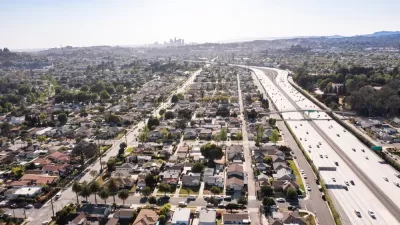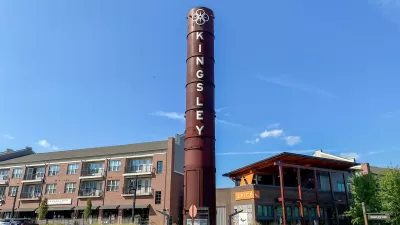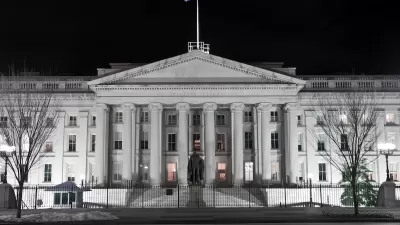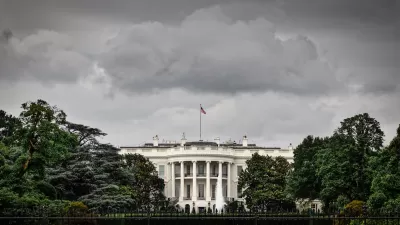Conservative pundits are using the term “luxury beliefs” as a means of criticizing progressives. But can the concept be applied to urban planning? And can it be applied in a nonpartisan way?

One phrase that has been making the rounds of the right-wing media is “luxury beliefs.” Pundit Rob Henderson writes that luxury beliefs are “ideas and opinions that confer status on the rich at very little cost, while taking a toll on the lower class.” Because every example he uses is a belief that liberals tend to favor, Henderson seems to believe that left-wing ideas “confer status on the rich” and are generally bad. Here, I think Henderson is oversimplifying: what confers status in the liberal Upper West Side might not confer status in many affluent but more conservative places. Thus, the same argument can be a luxury belief in some places (or for that matter, Facebook groups) but not others.
So what’s the difference between a luxury belief and a merely wrongheaded one? It seems to me that Henderson is trying to say that a luxury belief has no impact on the believer, because its negative effects are felt by people who are poorer, or who live in a poorer or more diverse area.
Here’s an example relevant to urban planning: in the 1970s, the Supreme Court ordered urban school districts to bus white students into Black neighborhoods and vice versa in order to integrate schools. But because suburban school districts had allegedly never segregated their schools, they were generally exempted from this policy.* (Ultimately, urban white parents reacted by moving to suburbia, followed more recently by Black middle-class parents).
So when liberal suburbanites supported the Court's busing rulings, this was a luxury belief: busing forced urbanites to bear the actual or perceived burden of school desegregation,** while suburban whites got off scot-free. Because civil rights was more popular in suburbia than busing, a suburbanite could get credit for supporting civil rights without enraging his neighbors who did not want their children to attend school with Black children, many of whom were from lower-income, less-educated households. On the other hand, if you had children who were being bused, support for busing would definitely not be a luxury belief, because you would be bearing the burden of your own beliefs (whether those beliefs were correct or not).
So is this relevant to urban planning? I think it is certainly possible for beliefs about planning issues to be luxury beliefs. Based on the above discussion, the “luxuryness” of a belief depends on three elements: 1) whether the negative results of the belief, if any, will affect the believer; 2) whether those results will affect people worse off than the believer; and 3) whether the beliefs confer social status in some relevant social circle.
A not-so-liberal example is when homeowners justify hostility to new housing by proclaiming “No one has a right to live in my suburb/city/neighborhood”. Unlike supply skeptics, people who endorse this argument don’t pretend to deny that new housing reduces prices; the whole point of the argument is to justify exclusion of people who can’t afford the area. ***
Element 1 is met because the negative results of this policy (more expensive housing) actually help the homeowner. Element 2 is met because the people who are excluded by the homeowners' preferred policies, even if they aren’t poor, are by definition less wealthy than the homeowner. Element 3 is met if the homeowner is surrounded by other homeowners who agree (though less so if the homeowner seeks prestige among intellectuals who care or pretend to care about affordability).
A more liberal example is opposition to market-rate (or even subsidized middle/working-class housing) because it is not “deeply affordable” (that is, affordable to destitute people). Element 1 is if the believer is a homeowner who benefits from rising property values, or is otherwise insulated from rising rents, or even if they live in a rich area where low-income housing is so politically radioactive that will never be built. Element 2 is met if the people who are priced out of the neighborhood by the absence of new housing are poorer than the believer. Element 3 is certainly met in the urbanist circles I travel in and in most of my city (New York City), because most urbanists and New York politicians treat “affordable housing” as a public good.
In sum, it seems to me that “luxury beliefs” are real: there are situations where people favor policies that don’t affect them but would negatively affect someone poorer or more marginalized in some other way, and those people may be more popular if they support those policies. But I also think the concept is a bit slippery: the same idea can be “luxury” for one person but not for others. A belief can be luxury for a person who isn’t affected by it and nonluxury (even if wrong) for a person who is so affected. Similarly, a belief can be luxury in liberal circles but not in conservative circles, or vice versa.
*I note that suburbs’ disproportionately-white populations are in part a result of exclusionary zoning that kept out lower-income people, who disproportionately tended to be Black. I therefore reject the Court’s apparent view that suburbs’ white schools were not a result by government-imposed segregation. Having said that, my point of view has not prevailed in the courts and may never prevail.
**Some readers might be asking whether school desegregation was a burden at all. The widespread movement of white families to suburbia after 1970 suggests that white parents believed that desegregation was indeed a burden, for both racist and not-so-racist reasons. To an even greater degree than is true today, blacks tended to be poorer than whites. I suspect that in addition to having purely irrational racial prejudices, white parents believed (rightly or wrongly) that their children would learn less in a classroom with children from underprivileged households.
**Can supply skepticism be a luxury belief? The answer to this question depends on whether you believe supply skepticism has negative results. Any reader of my work (both on this blog and elsewhere) can see that I believe supply skepticism to be harmful to renters and people trying to buy homes. However, I realize that not all readers will agree with me about this point.

Alabama: Trump Terminates Settlements for Black Communities Harmed By Raw Sewage
Trump deemed the landmark civil rights agreement “illegal DEI and environmental justice policy.”

Planetizen Federal Action Tracker
A weekly monitor of how Trump’s orders and actions are impacting planners and planning in America.

The 120 Year Old Tiny Home Villages That Sheltered San Francisco’s Earthquake Refugees
More than a century ago, San Francisco mobilized to house thousands of residents displaced by the 1906 earthquake. Could their strategy offer a model for the present?

Ken Jennings Launches Transit Web Series
The Jeopardy champ wants you to ride public transit.

BLM To Rescind Public Lands Rule
The change will downgrade conservation, once again putting federal land at risk for mining and other extractive uses.

Indy Neighborhood Group Builds Temporary Multi-Use Path
Community members, aided in part by funding from the city, repurposed a vehicle lane to create a protected bike and pedestrian path for the summer season.
Urban Design for Planners 1: Software Tools
This six-course series explores essential urban design concepts using open source software and equips planners with the tools they need to participate fully in the urban design process.
Planning for Universal Design
Learn the tools for implementing Universal Design in planning regulations.
Clanton & Associates, Inc.
Jessamine County Fiscal Court
Institute for Housing and Urban Development Studies (IHS)
City of Grandview
Harvard GSD Executive Education
Toledo-Lucas County Plan Commissions
Salt Lake City
NYU Wagner Graduate School of Public Service






























